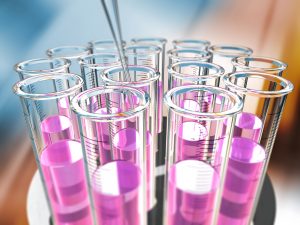 By: Karina Gonzalez
By: Karina Gonzalez
A recent whistleblower action (by UnitedHealthcare Medical Director, Tina Groat) against Boston Heart (laboratory) was brought under the federal False Claims Act and deals with medical necessity issues. As part of the analysis, the Court reviewed whether a laboratory [or supplier like DME] must determine the medical necessity of the ordering physician. Boston Heart contended that a doctor, not a laboratory, determines the medical necessity of a test. Boston Heart argued that when a laboratory bills Medicare for testing ordered by a physician, it must only maintain documentation it receives from the ordering physician and ensure that the information that it submitted with the claim accurately reflects the information it received from the ordering physician. It noted that the CMS-1500 form certification does not require that the billing lab to make the medical necessity determination. The lab certifies that the services are medically necessary by relying on the clinical determination of the treating physician.
The whistleblower’s position was that the lab had an independent duty to ensure the medical necessity of the tests it performs. Initially, the Court concluded that the Whistleblower had pleaded facts sufficient to support her claim that Boston Heart’s certifications of medical necessity were legally false because it had an independent obligation to certify that the tests for which it requested reimbursement were medically necessary.
Boston Heart challenged the Court’s conclusion stating that it “conflicts directly with the longstanding position of the OIG’s Compliance Program Guidance for Clinical Laboratories (Office of Inspector General) that “laboratories do not and cannot treat patients or make medical necessity determinations”.
On review of the OIG’s Guidance for Laboratories, the Court concluded that it had overstated a laboratory’s obligation to establish that the tests for which it seeks reimbursement are medically necessary. The Court said that when a laboratory submits a CMS-1500 claim form, it certifies that the tests performed were medically necessary and must ensure that it does not submit claims for medically unnecessary tests. However, the Court was convinced that a laboratory cannot and is not required to determine medical necessity, but rather is permitted to rely on the ordering physician’s determination that the laboratory tests ordered are medically necessary. The OIG Guidance describes a laboratory’s duties to ensure that it does not submit claims for medically unnecessary tests but did not include an independent determination of the medical necessity by the laboratory of each test performed and billed.
In the Court’s view, the OIG Guidance would have explicitly included and obligation for a laboratory to make an independent determination of medical necessity if it had intended to impose such an obligation on laboratories.
It may be persuasive to use with payors that have increasing looked to laboratories to confirm the medical necessity of the test ordered by a physician. Nevertheless, a laboratory still has an obligation to communicate with physicians, maintain documentation to support medical necessity, construct requisition forms to promote conscious ordering of tests by physicians, and review coding.
Case: United States v. Boston Heart Diagnostics Corp., 2017 U.S. Dist. LEXIS 202982 (D.D.C., December 11, 2017).
